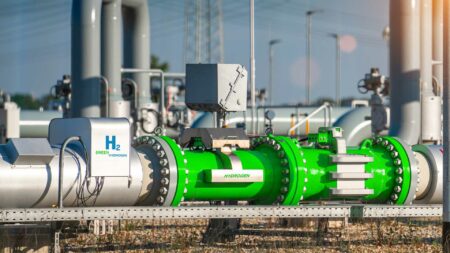In its Fit-for-55 package, the European Commission has set new renewable hydrogen objectives.
By 2030, the EU wants 50% of the hydrogen used in industry to be renewable, and renewable hydrogen can only originate from renewable power. To meet these objectives, the Commission plans to begin a large-scale deployment of renewable hydrogen to decarbonize hard-to-decarbonize industries.
Europe will not achieve climate neutrality until these sectors are decarbonized. Renewable hydrogen, on the other hand, will not only assist to cut emissions. It will also propel European innovation, job development, and industrial expansion.
The EU must take bold steps quickly to kick-start the spread of renewable hydrogen. Especially if Europe wishes to be the world leader in hydrogen. Europe will be well positioned in the global battle in hydrogen technology and industry if it can make renewable hydrogen generation competitive with conventional hydrogen this decade.
However, Europe must invest in the necessary infrastructure to establish a green hydrogen economy. It is critical that we have sufficient amounts of renewable energy and electrolyzers to create renewable hydrogen.
In comparison to other options, the EU must also acknowledge the evident benefits of renewable hydrogen in terms of greenhouse gas emissions reductions. Furthermore, you must establish a clear and reliable traceability mechanism for renewable hydrogen and its derivatives.
Furthermore, the EU must guarantee that its lofty goals are matched by equally lofty legal mechanisms, particularly in the areas of finance and assistance. The cost gap between renewable hydrogen and fossil-based alternatives must be bridged, since this will offer European customers the confidence to convert to renewable hydrogen at the lowest possible cost.
“Renewable hydrogen is crucial for those areas of energy consumption that we cannot directly electrify,” said WindEurope CEO Giles Dickson. Its development will also assist the economy. The EU must make it easier for them to expand and deploy. To begin with, more renewable energy and electrolyzers are required. However, in order to make renewable hydrogen more affordable, we need the proper financial and support tools. In addition, we require a transparent traceability mechanism for renewable hydrogen. If done correctly, this will lower emissions, encourage innovation, and generate new employment and economic growth.’








